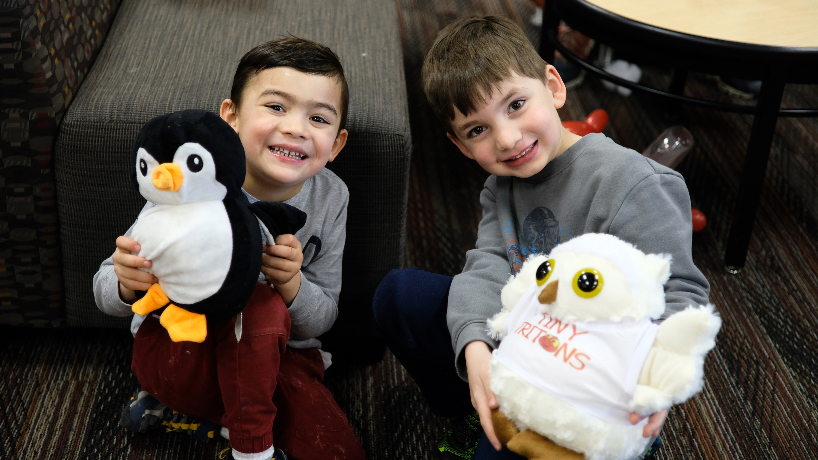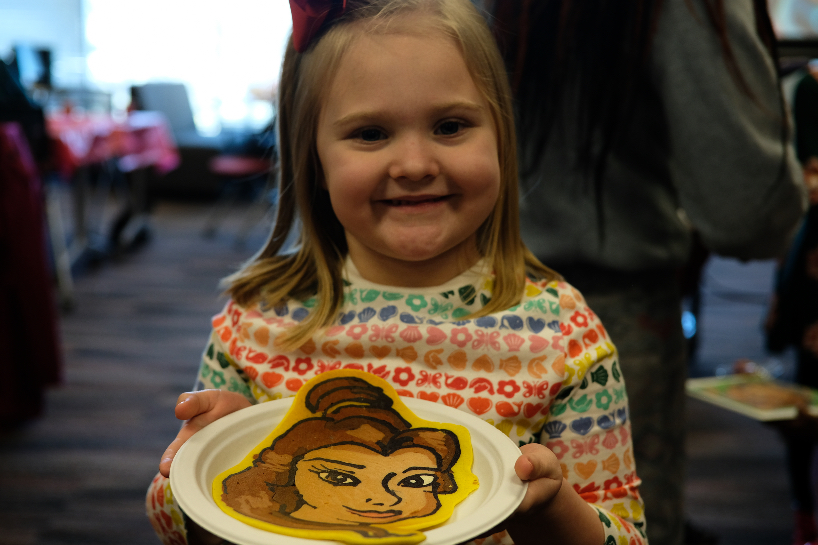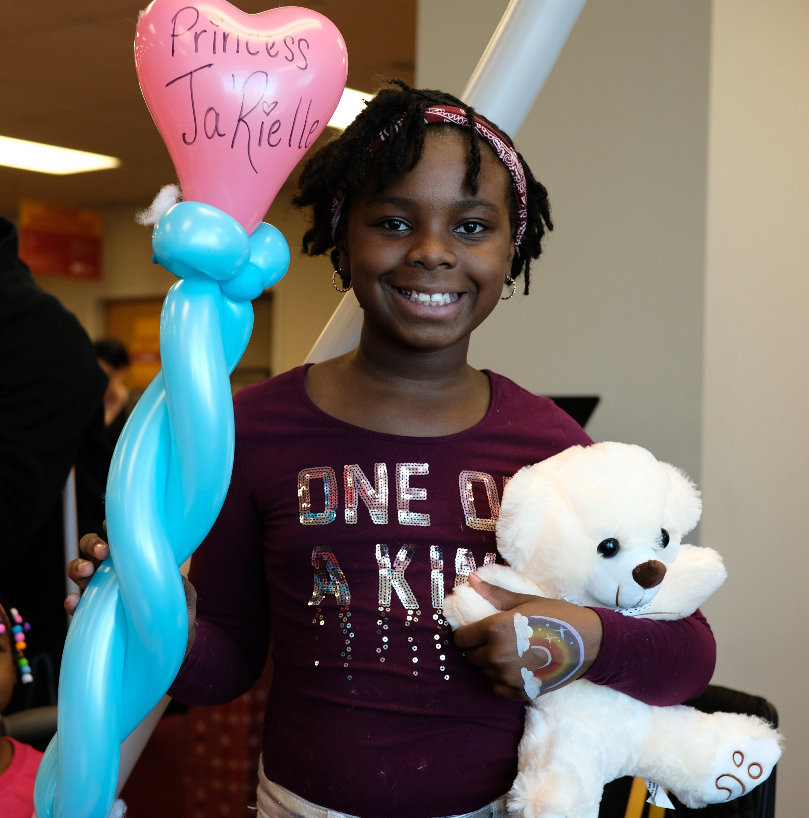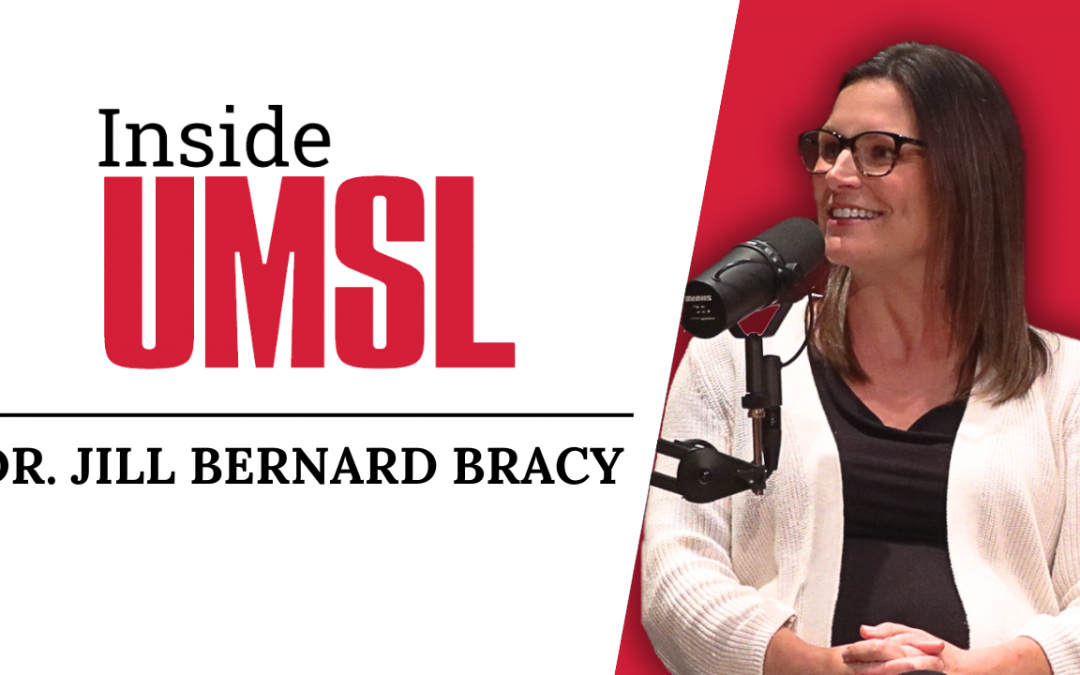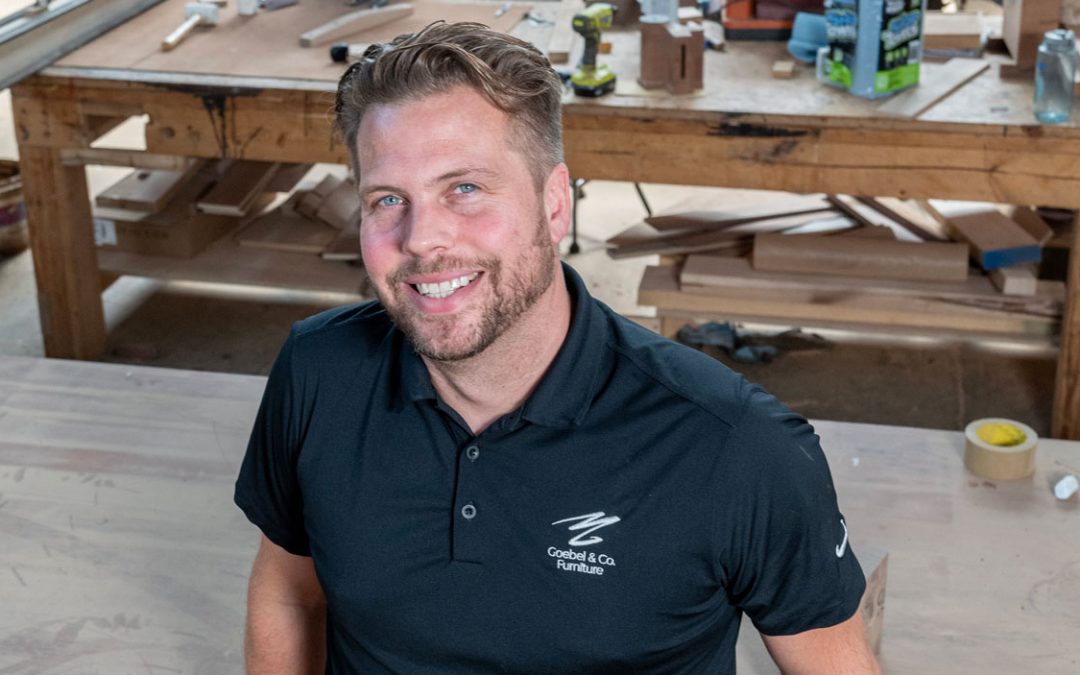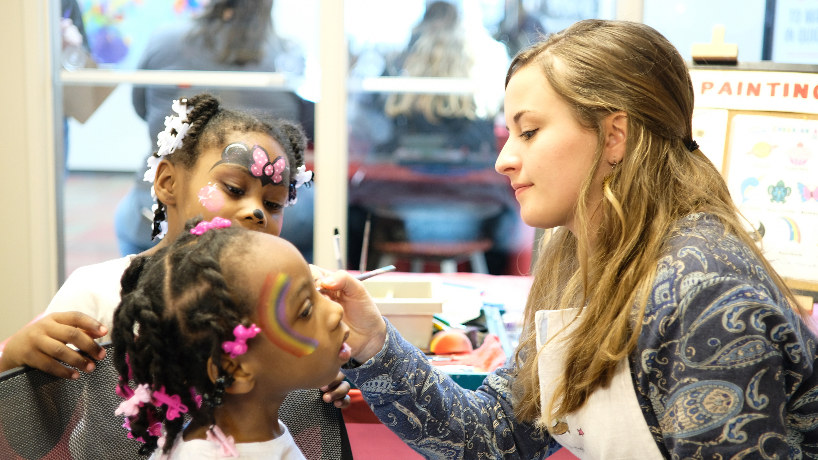
Tiny Tritons volunteers created bold face-painting designs during the homecoming pancake breakfast, an event for children from kindergarten to fifth grade, on February 29. (Photos by Mona Sabau)
With classes, jobs, extracurricular activities, friends, social obligations, hobbies and more, college students’ lives are often juggling acts.
That’s especially true for nontraditional students who care for children while pursuing a degree. They balance papers with Pampers and classes with carpools, which can make attending college a challenge.
Tiny Tritons, run by the Office of Student Involvement at the University of Missouri–St. Louis, gives parents a chance to merge university and family life. Designed for kindergarten to fifth grade children, Tiny Tritons events bring free kid-friendly entertainment and activities to UMSL.
This month, the program received a national silver excellence award for Alumni, Community Relations, Family Programs, Fundraising and Related Programs from NASPA Student Affairs Administrators in Higher Education. NASPA is a professional organization for student affairs personnel and is dedicated to supporting college students.
Pancake breakfast attendees built stuffed animals. Tiny Tritons events are designed to form connections throughout the UMSL community for both children and caregivers.
That dedication led to Tiny Tritons’ creation in 2013.
“It was one of those ideas where our office saw a need,” said Jessica Mode, coordinator of student activities. “We needed a place for students who are parents to fit in the community. It’s cool to see how that idea sparked and has grown over all seven years we’ve had Tiny Tritons.”
Jessica Long-Pease, director of Millennium Student Center operations and Student Involvement, served on the team that developed Tiny Tritons.
“We identified it as a need because we have so many students on campus who are caregivers of some sort,” she said. “Either they’re parents themselves or they have responsibility for a sibling, something in that realm. We wanted to provide a program that would support them and enable them to introduce their child or sibling to the college environment early on.”
The original idea evolved into a schedule of programs like cupcake decorating, demonstrations by the St. Louis Science Center, petting zoos, musical performances and soccer clinics. Most recently, Tiny Tritons hosted a pancake breakfast during homecoming week and featured Dancakes, an St. Louis-based company that creates intricate, edible designs featuring cartoon characters and portraits in pancakes.
Mode, along with a student program manager, takes the lead in planning activities, logistics and marketing for Tiny Tritons events, while Long-Pease offers support and serves as the program’s advocate by connecting it with other groups and campus initiatives.
“As an event planner, I always think everything’s going to go smoothly and be organized,” said Mode. “When we do Tiny Tritons, it’s the complete opposite. Events are usually crazy and hectic, but I think the craziness and the chaos is actually the exciting part. Otherwise, the kids probably wouldn’t be enjoying it.”
Dancakes created custom designs featuring Disney princesses and other cartoon characters during the Tiny Tritons pancake breakfast.
Each event incorporates interactive activities that bring children and parents together with other families. To make programs accessible to everyone, there is no cost to attend Tiny Tritons events.
“We see a lot of attendance at events that bring local attractions to campus,” Long-Pease said. “They’re getting to bring their kids here to do something and have fun, and they’re not having to pay for it. It’s a really cool opportunity for them to see different things from around the city.”
Although designed with students’ needs foremost in mind, Tiny Tritons also attracts faculty, staff and alumni. Long-Pease brings her own children to events so they can explore the UMSL campus and the idea of higher education.
“A lot of people who are connected to UMSL are looking for something their whole family can be involved in,” Mode said. “It’s good for those populations to blend in a way where they have some overlapping common interest – their kids. Even adults can spark a conversation about something at the events. I think of Tiny Tritons as being a hub for parents, where their community lies.”
Kids were all smiles at the Tiny Tritons pancake breakfast, a no-cost event that offered a range of fun, family-friendly activities.
When NASPA nominations opened last summer, the Office of Student Involvement self-nominated Tiny Tritons. Adult and higher education graduate student Michaela Wells, who works in the office as a graduate assistant, submitted the nomination paperwork. The program was an ideal fit for categories like best practices and impact on the community. Its structure could also serve as a template for similar programs at other universities.
Although they’re proud of earning national recognition, Long-Pease and Mode view winning the NASPA award as an inspiration to continue growing the program. Ideas include strengthening connections with campus groups like Students Who Are Parents, providing child care at events and offering new activity themes.
“The challenge is identifying programs that are going to grab people’s attention, knowing we have a wide age range,” Long-Pease said. “What you really like in kindergarten is not what you like in fifth grade. We’re trying to find things that are universally appealing to get caregivers on board and keep it fresh. We’re making connections with the St. Louis community and businesses so there are new opportunities, new things to see.”
It starts with a single goal: spreading the word to the approximately 700 current UMSL students who indicated on the Free Application for Federal Student Aid that they care for a dependent.
“I want folks to check it out,” Long-Pease said. “We see the value in allowing not only children to connect with one another but parents and caregivers to connect as well. It’s great to see students, faculty and alumni all growing the UMSL community.”

